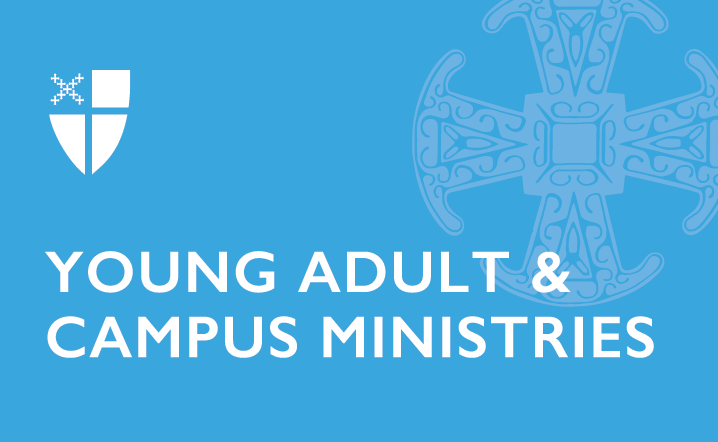Foundation Cristosal summer course to help participants become a voice for justice
Our guest blogger today is Olivia Amadon, Global School Coordinator for Foundation Cristosal.
Salvadoran youth remember Archbishop Romero during the annual march through San Salvador on the anniversary of his death. Their banner reads “If they kill me, I will rise in the Salvadoran people,” words spoken by Oscar Romero a few weeks before his murder.
Throughout history, religion and the Bible have at times been used for personal gain or glory, and texts have been manipulated and taken out of context to justify injustices like slavery, war and destruction against nature and human life.
In the midst of so many different definitions and interpretations, how do we Christians know what is the mission of the Church? How do we base our actions on a theological framework, and where do we start? How do we find our voice?
This July 19th – 26th, Foundation Cristosal’s Global School is offering a course in San Salvador to explore all of these questions, with the historical and current reality of El Salvador at the center. We are inviting a diverse group of clergy, lay men and women, activists and development practitioners from throughout North America and El Salvador to come together to dialogue about the meaning of mission and development.
The course will be facilitated by Paulo Ueti, the regional facilitator for the Anglican Alliance for Development, Relief and Advocacy, who will guide us through contextual Bible readings, identifying Biblical hermeneutics and political agendas, both within the Bible itself and throughout a history of interpretation (the uses and misuses of the Bible).
This course is being facilitated in El Salvador precisely because of the country’s rich history and the example of martyrs like Roman Catholic Archbishop Oscar Romero, who was shot and killed while saying mass in San Salvador on March 24th, 1980. He was shot because he was a voice for justice, reconciliation and peace in times of social conflict and war. He was shot because he ordered the armed forces to stop killing their own brothers and sisters at a time when innocent civilians were disappeared, tortured and massacred by their own government on a daily basis. Oscar Romero died because he believed that the mission of the Church was to be a voice for the voiceless, for those who were denied access to their basic human rights.
Romero was not alone. Tens of thousands of Salvadoran civilians lost their lives in the Salvadoran Civil War, among them many priests, nuns, missionaries, catechists and lay men and women dedicated to living out the Gospel. They, too, understood the mission of the Church as the mandate to work for justice even when they were labeled as “too political” and even when they were putting their lives at risk.
In his homily from May 8th, 1977, Romero spoke about the mission of the Church:
“The rights of the human person are of great interest to the Church. Indeed, when life is endangered, Mother Church is interested. At this moment, the Church is very mindful of mothers who are suffering. The church is interested in those who are unable to speak, who suffer, or are tortured or silenced. This is not being political. Rather politics has touched the altar, has touched morality and the Church has the right to speak its word of moral orientation.”
Oscar Romero did speak, and even after his death, his voice for justice continues to echo in the conscience of Salvadoran society and around the world.
The Gospel calls Christians to speak out for justice, truth and life, but in order to know how to speak we must first listen. We must listen to the reality around us, the context in which each of us finds ourselves and the challenges the world faces. None of us will be Oscar Romero. We were not meant to be. But I do think that if we listen carefully to the world today – especially the reality of the poor and marginalized – we will find our voice.
This course is open to anyone who would like participate, regardless of religious affiliation, age, experience, educational level or language ability (Spanish-English language interpretation will be provided). If you are interested in learning more about this course, contact Olivia Amadon, trips.cristosal@gmail.com or visit Cristosal’s website at www.cristosal.org.
Filed under: Latest Post, Leadership, Young Adults

